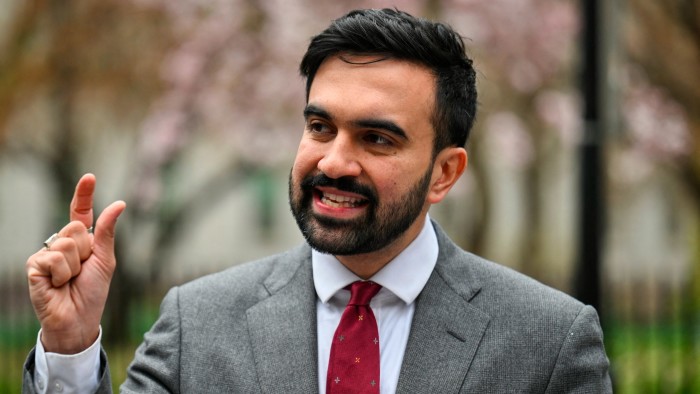
Zohran Mamdani, a democratic socialist who recently won New York City’s Democratic mayoral primary, has sparked a heated debate by questioning the very existence of billionaires. In an interview with NBC News, Mamdani stated, “I don’t think that we should have billionaires.” This statement challenges the role of extreme wealth in society and raises fundamental questions about economic equality and capitalism.
Mamdani argues that the concentration of wealth in the hands of a few individuals is problematic, especially in times of significant inequality. His perspective suggests that the economy operates as a zero-sum game, where one person’s gain is another’s loss. However, this view overlooks the broader contributions billionaires make to society.
The Economic Contributions of Billionaires
Contrary to Mamdani’s assertion, billionaires often play a crucial role in enhancing societal wealth. Jeff Bezos, the founder of Amazon, is a prime example. His innovations have not only amassed him a fortune estimated around $240 billion but have also created substantial value for the broader economy.
Economist and Nobel laureate William Nordhaus found that innovators typically capture only 2.2% of the benefits from their innovations, implying Bezos has generated approximately $11 trillion in wealth for others.
This wealth manifests in various forms, such as lower prices for consumers, increased purchasing power, and time saved from more convenient shopping experiences. These benefits extend beyond Bezos, with figures like Bill Gates and Michael Dell enhancing productivity through technological advancements, thereby increasing wages and economic output.
Incentives and the American Dream
The existence of billionaires also serves as a powerful incentive for aspiring entrepreneurs and professionals. A 2013 study revealed that two-thirds of the wealthiest 400 Americans did not inherit their wealth, and 70% were the first in their family to run a business. This data underscores the notion that economic success is attainable through innovation and effort, a cornerstone of the American Dream.
Moreover, the debate over billionaires touches on broader questions about the integrity of democratic capitalism. Critics argue that the system is broken, yet evidence suggests that economic inequality, when linked to differences in effort and skill, is a natural outcome of a healthy capitalist system. In this context, billionaires earn their wealth through outsized contributions to society.
The Political and Moral Dimensions
Mamdani’s stance is not without precedent. Figures like Senator Bernie Sanders have similarly criticized the existence of billionaires, calling them a sign of policy failure. On the right, Steve Bannon has advocated for significant tax increases on the wealthy to align with populist agendas. However, these positions often overlook the broader societal benefits billionaires provide.
Rather than targeting billionaires with punitive measures, society should recognize their role as full citizens who contribute to and benefit from the economic system. The focus should be on fostering an environment where success is celebrated and encouraged, not vilified.
Looking Ahead: The Implications for Policy
If Mamdani ascends to the mayor’s office, he may find that reducing the number of billionaires in New York could have unintended consequences. The city’s economy, like many others, benefits significantly from the investments and innovations driven by its wealthiest residents. As policymakers consider the future of economic inequality, they must balance the moral imperatives of fairness with the practical benefits of wealth creation.
Ultimately, the debate over billionaires is a reflection of broader societal tensions about wealth and equality. As the conversation continues, it is crucial to recognize the complex role that billionaires play in driving economic progress and innovation.






